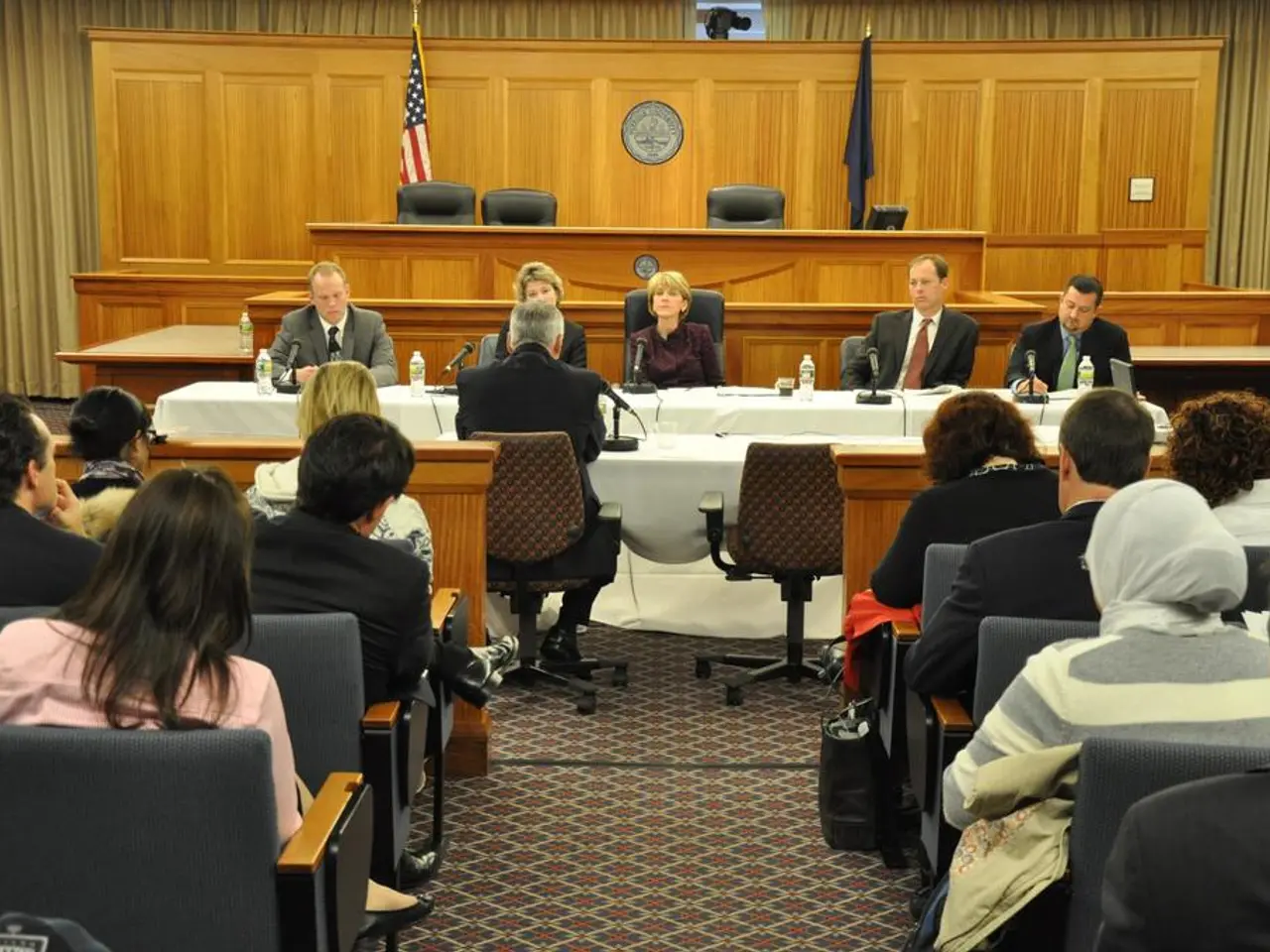Power Struggles and Political Drama: A Spotlight on Governmental Affairs
The U.S. House of Representatives, including Colorado's members, has passed a multitrillion-dollar tax breaks and spending cuts bill, marking a significant step in the GOP-led legislative agenda. This bill, valued at $4.5 trillion, is said to be the largest tax cut in American history and has sparked intense debate among lawmakers.
The bill extends the 2017 tax cuts while making substantial cuts to Medicaid and food assistance programs by $1.2 trillion. The legislation includes stricter Medicaid work reporting requirements, increased enrollee cost-sharing, tougher enrollment and retention rules, and restricts state financing options and payments to hospitals and nursing facilities. It also eliminates access to Medicaid for many lawfully present immigrants.
The bill is expected to provide significant tax breaks, with a typical family receiving up to $10,900 more in take-home pay and workers potentially seeing wage increases up to $7,200. Households earning less than $100,000 are projected to benefit under this plan.
However, the Congressional Budget Office estimates nearly 12 million more Americans will lose health insurance under this law, with some reports citing up to 17 million losing coverage. The bill also includes a massive increase in immigration enforcement.
The bill passed the House largely along party lines, with only two Republicans opposing it. It passed the Senate by a single vote, with Vice President JD Vance casting the tie-breaking vote. All Democrats in the House voted against the bill, expressing concerns about the bill's potential impact on low-income Americans' health and food security.
The bill now awaits President Trump's signature, marking a significant shift away from the health and social welfare policies of recent Democratic administrations, significantly reducing the federal government's role in Medicaid, Medicare, and nutrition assistance programs while delivering historic tax cuts mostly favoring higher-income earners.
[1] Congressional Budget Office Report [2] Joint Committee on Taxation Report [3] White House Fact Sheet [4] Tax Policy Centre Analysis
- The U.S. House of Representatives' recently passed bill, a significant step in the GOP-led policy-and-legislation agenda, substantially modifies Medicaid and food assistance programs, leading to intense debate in the politics sector and general news.
- The bill, if signed into law by President Trump, will significantly shift the policies of recent Democratic administrations, reducing the federal government's role in Medicaid, Medicare, and nutrition assistance programs, while delivering historic tax cuts, primarily benefiting higher-income earners.








